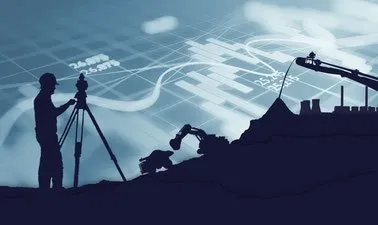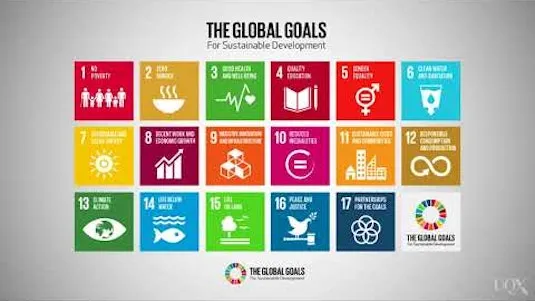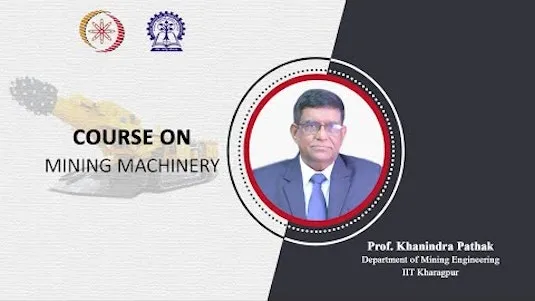
The Minerals and Mining Business 
Minerals and mining are essential for industrial and commercial progress, as well as for health and agricultural production. Without access to these resources, mankind would be unable to progress. Therefore, the minerals and mining business is an important part of the global economy. ▼
ADVERTISEMENT
Course Feature
![]() Cost:
Cost:
Free
![]() Provider:
Provider:
Edx
![]() Certificate:
Certificate:
Paid Certification
![]() Language:
Language:
English
![]() Start Date:
Start Date:
Self paced
Course Overview
❗The content presented here is sourced directly from Edx platform. For comprehensive course details, including enrollment information, simply click on the 'Go to class' link on our website.
Updated in [March 06th, 2023]
Learners can learn about the importance of minerals and mineral products to industrial and commercial progress, the process of minerals extraction and production, the value-chain of minerals projects, and the various stakeholders involved in the mining business. They can also gain an understanding of the different funding mechanisms available for minerals projects, such as equity, debt, metal streaming, farm-ins, and joint ventures. Through videos, expert insights, simulations, and discussions, learners can gain a comprehensive overview of the minerals and mining sector.
[Applications]
Upon completion of this course, participants will have a better understanding of the minerals and mining business, including the discovery, exploration, research, analysis and planning processes. They will also be able to identify the various stakeholders involved in the sector, and the value-chain of the minerals and mining industry. Participants will be able to apply this knowledge to their own businesses, and use it to make informed decisions about investments in the minerals and mining sector.
[Career Paths]
1. Mining Engineer: Mining engineers are responsible for the planning, design, and operation of mines. They are also responsible for the safety and efficiency of the mining process. As the industry continues to evolve, mining engineers must stay up to date on the latest technologies and trends in order to remain competitive.
2. Geologist: Geologists are responsible for the exploration and evaluation of mineral deposits. They use a variety of techniques to identify and assess potential mineral resources. As the demand for minerals increases, geologists are increasingly in demand to help identify and develop new sources of minerals.
3. Metallurgist: Metallurgists are responsible for the extraction and processing of metals from ore. They use a variety of techniques to extract and refine metals from ore, including smelting, leaching, and electro-refining. As the demand for metals increases, metallurgists are increasingly in demand to help develop new sources of metals.
4. Environmental Scientist: Environmental scientists are responsible for the assessment and management of environmental impacts associated with mining operations. They use a variety of techniques to identify and assess potential environmental impacts, and develop strategies to mitigate these impacts. As the industry continues to evolve, environmental scientists must stay up to date on the latest technologies and trends in order to remain competitive.
[Education Paths]
1. Bachelor of Science in Mining Engineering: This degree program focuses on the science and technology of extracting and processing minerals from the earth. It covers topics such as geology, mineralogy, surveying, geotechnical engineering, rock mechanics, mine planning, and environmental management. Students will learn how to design and manage mining operations, as well as how to develop and implement safety protocols. This degree is becoming increasingly important as the demand for minerals and metals continues to grow.
2. Master of Science in Mineral Economics: This degree program focuses on the economic aspects of the minerals and mining industry. It covers topics such as mineral economics, mineral law, mineral finance, and mineral marketing. Students will learn how to analyze and evaluate mineral projects, as well as how to develop strategies for mineral resource management. This degree is becoming increasingly important as the demand for minerals and metals continues to grow.
3. Doctor of Philosophy in Mineral Exploration: This degree program focuses on the exploration and discovery of minerals and metals. It covers topics such as geology, geophysics, geochemistry, and mineralogy. Students will learn how to identify and evaluate mineral deposits, as well as how to develop exploration strategies. This degree is becoming increasingly important as the demand for minerals and metals continues to grow.
4. Master of Science in Mineral Processing: This degree program focuses on the processing of minerals and metals. It covers topics such as mineral processing, metallurgy, and chemical engineering. Students will learn how to design and operate mineral processing plants, as well as how to develop and implement process control systems. This degree is becoming increasingly important as the demand for minerals and metals continues to grow.
Course Provider

Provider Edx's Stats at AZClass
Discussion and Reviews
0.0 (Based on 0 reviews)
Explore Similar Online Courses

Principles of Machine Learning

Laravel Deployment - Launch your Laravel Application Online

Python for Informatics: Exploring Information

Social Network Analysis

Introduction to Systematic Review and Meta-Analysis

The Analytics Edge

DCO042 - Python For Informatics

Causal Diagrams: Draw Your Assumptions Before Your Conclusions

Whole genome sequencing of bacterial genomes - tools and applications

Mining Engineering

The Future of Mining?

Mining Machinery
 Related Categories
Related Categories
Quiz
 Submitted Sucessfully
Submitted Sucessfully
1. What is the main purpose of this course?
2. What are some of the funding mechanisms discussed in this course?
3. What is the value-chain in the minerals and mining sector?


Start your review of The Minerals and Mining Business